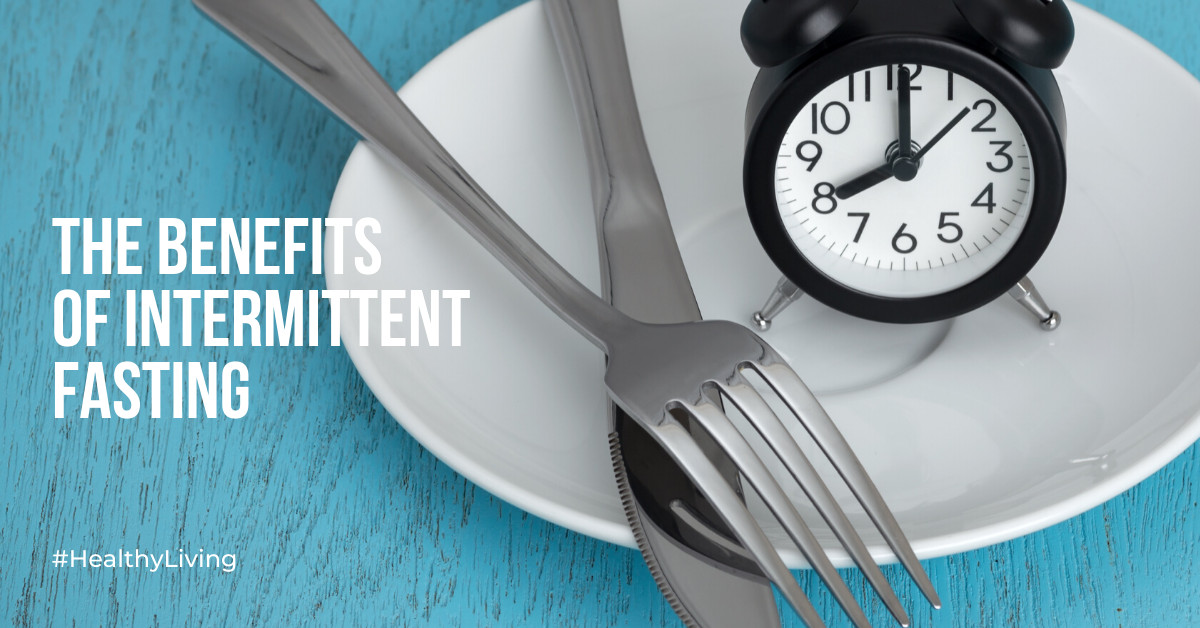The Benefits of Intermittent Fasting
Every woman tried at least one diet and hoped for instant results. Instead of restrictive diets, I found a life-style hack that works for me. Intermittent fasting might be the right kind of lifestyle for you too. Let’s start with the basics.

What is intermittent fasting?
Fasting in the strict sense is a period in which you don’t consume any food or liquid. Intermittent fasting is a time-restricted eating pattern that you stick to daily. In my case, I follow the most well-known one the 16:8 rule. I have 8 hours in which I eat and drink what I like and 16 hours when I fast. Time-restricted eating offers many benefits health-wise.
What happens with your body when you fast?
When you’re fasting you give time to your body to focus on repairing and restoring your cells instead of digestion. Because you only consume calories in 8 hours of the day, your body has more time to focus on cellular repair and restore, which are essential processes. By the end of the fast, you are resetting your metabolic rhythm.[1]
Why is intermittent fasting working?
Let’s see what happens inside your body when you are fasting and what are the benefits of it. Within these 16 hours, many beneficial health effects have been recorded such as:
- Reduced fat mass (e.g. you are burning your fat)
- Increased lean muscle mass (e.g. you are building muscle)
- Reduced inflammation (inflammation is the way your body fights infections. If you eat too much and too often you have excess inflammation.)[2]
- Increased mitochondrial volume (mitochondria are the organelles that generate energy for your cells)
- Ketone body production (when you are fasting your body will use these ketones as an energy source)
- Improved repair processes (e.g. you are literally repairing your cells)
What is the origin of intermittent fasting?
Let’s see where is intermittent fasting coming from and how it became so popular nowadays.
Fasting is as old as humanity. Looking at the eating patterns of our ancestors it is clear that the human body was designed to function while fasting. Our ancestors were hunters and gatherers and they ate when they managed to hunt down their preys or when they found edible plants. This might not have happened at times for days, but they still survived.
Intermittent fasting with the 16:8 rule has been largely popularized by Martin Berkhan around 2010. Martin Berkhan is a nutritional consultant, writer, and personal trainer who is often called the godfather of intermittent fasting. Another advocate of intermittent fasting is Rhonda Patrick who’s website I can highly recommend for more information.
Eat whatever you want with the 16:8 intermittent fasting rule
This is what makes intermittent fasting such an easy choice for me. I don’t have to give up on any of the food groups and I don’t have to follow any kind of meal plan. My only rule is to stick to the 8 hours window every day.
Fasting has many different forms such as long-term (some people can fast even for days) but in my case, I try to stick to the 16:8 rule. I fast for 16 hours and I have a window of 8 hours in which I am free to eat any kind of food I like. Obviously, if you do it for weight loss you still shouldn’t consume too many carbs but generally speaking, I eat whatever I wish to eat.
Health benefits of intermittent fasting
Weight-loss aside, intermittent fasting can offer multiple benefits for your body in the long-run.[3]
- Lower risk of metabolic diseases
- Improved glucose levels
- Lowered blood pressure
- Lowered cholesterol level
- Increased energy
- Better sleep
- Improved gut health
- Lower risk of cancer
- Weight-loss
The existing research was done mainly on mice, these rodents seem to react well to time-restricted eating. Mice on intermittent fasting consumed the same number of calories as mice on a regular diet. The regular diet mice gained weight while the ones on intermittent fasting did not.[4]
This indicates that by sticking to intermittent fasting your body can burn more fat than by eating unrestricted. Your metabolism will boost, and many symptoms associated with diabetes can be avoided in the long run.
Are there any risks to intermittent fasting?
Every diet has it’s dangers. Intermittent fasting should be done with preparations and in case of any serious medical history should be first discussed with your doctor.
Intermittent fasting can increase your levels of cortisol thus making you feel stressed. Moreover, you should not follow intermittent fasting plans if you’re pregnant, underweight, have diabetes, take blood pressure or heart medications, younger than 18, or currently breastfeeding. Since you deprive your body of food for hours it can be dangerous under the aforementioned circumstances.
Intermittent fasting is a hot topic at the moment with many celebrities following it. We should expect new findings shortly as many researchers are also focused on the topic. If you’re healthy and looking for a new lifestyle hack it definitely worth a try. I know that it can be difficult in the beginning but if you stick to it the benefits will outweigh the struggles. If you have any kind of medical condition always check with your doctor first!
[3] https://www.chronobiology.com/intermittent-fasting-affects-circadian-rhythm-says-new-study/
[4] https://www.chronobiology.com/intermittent-fasting-affects-circadian-rhythm-says-new-study/
-
Luke Searrafitness€ 1,39 pm
-
Vlad SeredaFitness instructor€ 0,07 pm
-
David StevicFitness€ 2,48 pm
-
Jennifer-Jayne StonePT & Online Coach€ 1,49 pm
-
Carolina FernándezHolistic Dietitian€ 1,00 pm
-
Tizian KaiPersonal Trainer€ 0,13 pm

















